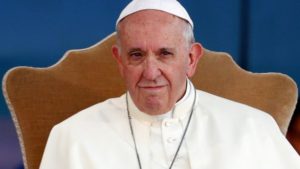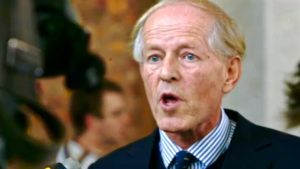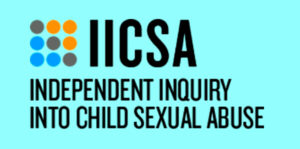 I have refrained from commenting on Roman Catholic issues to do with power abuse up till now. This is partly because I do not want to sound like a critical outsider taking aim at another church body. My reason now for wanting to refer to the Pope’s recent pronouncements on sexual abuse is to suggest that his recent statement is illustrating some fundamental failures of understanding as to how to deal with scandal. This is a problem for the whole Church, including the Church of England. Looking at what the Pope has said may help us to see our own Anglican problems a little clearer.
I have refrained from commenting on Roman Catholic issues to do with power abuse up till now. This is partly because I do not want to sound like a critical outsider taking aim at another church body. My reason now for wanting to refer to the Pope’s recent pronouncements on sexual abuse is to suggest that his recent statement is illustrating some fundamental failures of understanding as to how to deal with scandal. This is a problem for the whole Church, including the Church of England. Looking at what the Pope has said may help us to see our own Anglican problems a little clearer.
The recent 2000-word pronouncement about child sexual abuse from the Vatican seems to say, at first reading, all the right things. It lays blame on corrupt priests for taking advantage of the vulnerable and asks for prayers and fasting by the whole church for these ‘atrocities’. It sees the whole thing as a grievous stain on the Church.
The theologian Richard Sipe was a Catholic researcher who studied celibacy among Catholic priests in America and died quite recently. I have one of his books at home (I am away at present) and one of the striking claims he made which stuck in my memory was that only half the Catholic priests in his country were in fact celibate. To put it another way 50% of American Catholic priests are sexually active. I do not recall how this sexuality is normally expressed but one is reminded of the two French priests and their ‘arrangements’ in the pre-war comic French novel, Clochemerle. Each of the priests in the story had a compliant female housekeeper but they knew that their activities in bed were sinful. In the novel we hear the ways they arranged to confess to each other and receive absolution. This process involved each of them pedalling hard 20 km to each other’s village and picking up a penitence after a brief recital of their ‘delinquency’. The penitence required became ever more truncated and peremptory. This went on over several years. A sexually active priest is, by definition, having to carry out his activities in secret and this will frequently compromise any potential honesty and mutuality in the relationship. From the outside there may often appear to be a damaging element of control involved. A priest’s ‘lover’, male or female, will frequently end up damaged in the medium to long term.
A Catholic priest may of course act out his sexuality in ways that include criminal acts against children and young people. The law is clear that such relationships are not tolerated in any modern society. The law of the Catholic church, because all sexual activity by a priest is regarded as sin, may be less explicit in its utter revulsion for crimes against children. The Clochmerle relationships may or may not have had an abusive element in them but they were clearly far from being as culpable and damaging as the abuse of a child. Behind the prohibition of any sexual activity for a priest is the vexed issue of compulsory celibacy. This institution clearly does not serve the Church well. Nevertheless, the Church of Rome has shown itself unwilling to address the issue. In theory the Church expects all its clergy to control sexual longing. This enables it to present the priestly caste as somehow pure and holy, being removed from and above the distractions of carnal lust. Because this ideal is failing 50% of the time, the Church is in fact being deeply damaged in several ways. It is damaged by the creation of numerous victims, such as the 1000 children identified in the Pennsylvania Grand Jury Report. It is damaged because clergy are forced into secretive liaisons that force many of them into a permanent state of hypocrisy. One of the most telling aspects of the Pennsylvania Report was the suggestion that cover-ups of the worst abuses were made possible because Catholic bishops in informal relationships felt unable to discipline their child-abusing priests because the latter had the power to blackmail them for their own sexual compromises.
I cannot tell the Pope what to do, as the task of cleaning up the Church of Rome is vast. Clearly a start has to be made in deciding what should be realistically asked of a young priest in terms of dealing with his sexual side. One way forward could be to allow priests to marry. The hypocrisy of expecting ‘purity’ from all priests can never completely work as it is in conflict with the normal functioning of human nature. Some may succeed following the path of celibacy but many will not. There is also always going to be a high cost that the institution has to pay each time a scandal emerges. The age of the Internet means that these scandals can never be easily be covered up in the future.
The Anglican Church in dealing with its own scandals has in some ways behaved like the Church of Rome in its desire to protect itself. For the Vatican the supposed ‘purity’ of priests and thus the blameless institution they serve, seems to have been an overarching preoccupation. This approach, resulting in secrecy and rampant hypocrisy, has had little regard for those who inevitably have been damaged by the system of celibacy, particularly the under-age targets of priestly desire. For some Anglican leaders there seems to be a preoccupation with preserving not purity, but the assets of the organisation. On many occasions when a victim of abuse approaches the centre he/she is pushed away, sometimes brutally, because it is assumed that they are only interested in financial compensation. From my own dealings with victims this is generally not the case. Survivors would like the courtesy of being heard, having letters answered and generally being allowed a voice. This ‘othering’ of abuse victims by bishops and senior officials is unbelievably cruel behaviour when applied to someone who has already had their life ruined by the original abuser. The way that Anglican and Vatican authorities seem to react and think alike is because everything is seen only within the perspective of the institution and its interests. Commentators, such as I, can see the situation from other vantage points. Of course, the interests of the institution have to be weighed up and respected. But other perspectives are needed to obtain a rounded picture of what is really going on. To some of these, church authorities seem sometimes to be deaf and blind. First, we have the legitimate and just rights of survivors. If these are not listened to then the central mission statement of any church is trampled under-foot. How can any church put up with a situation where someone ‘causes one of these little ones to sin’? We all know how the text continues. When the Church, the guardian of morality, is seen to fail one of these ‘little ones’ it is judged very harshly by the wider public. The public relations impact of the recent child abuse scandals is wreaking enormous damage on both church bodies. The man on the Clapham omnibus is fast concluding that all churches are unsafe, even dangerous, places for children and young people. However good safeguarding practices are being put into place at present, failure to deal with past crimes will negate all the current good work.
In the past week social media has recorded the story of a survivor who was told by a Church of England clergyman to go back under a stone and that he had probably enjoyed his abuse. I normally double-check stories of this kind, but this report seems to chime in with the continuing revelation of how some senior clergy seemed to be uncaring and indifferent to the stories of survivors who disclose to them. The Smyth story has continued to reveal names of individuals who put the reputation of the Iwerne network above the protection of vulnerable young people. When will the damaging stories about the Church of England and the Catholic Church stop? They will stop when there is a change of mindset. The mindset has to include the ability to embrace the full reality of the scandals so that the protection of the institution is never the only or even the main consideration. Church leaders must learn to see the whole picture. This will always involve acknowledging the pain of victims as well as the increasing righteous anger of all who witness what is going on. The Church of Rome and the Church of England seem to struggle in their ability to see what is there in front of them, so that the health of both bodies is profoundly damaged.







